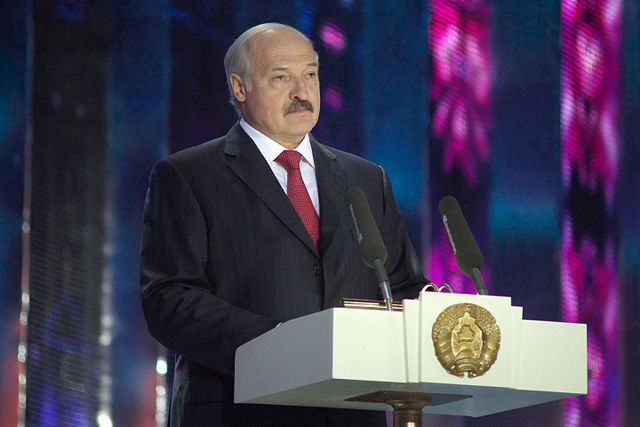Lukashenko “did not ask anyone for recognition” and inaugurated himself in secrecy
Kateryna Halushka | 24 Sep 2020
The first concept future diplomats have to learn is anarchy of international system, meaning there is no overarching power beyond the state. While there are many theories that would oppose this statement, recent events in Belarus are proving its validity.
Alexander Lukashenko was re-elected multiple times in Belarus and starting from 1994, he was the only official to hold this position in independent Belarus. For the whole period of Belarusian independence there were no protests similar to the scale than those after 2020 elections. One of the triggers for people to come out on the streets was governments mismanagement of the coronavirus pandemic. Lukashenko decided not to acknowledge severity of the situation and no public health policy was implemented which gave a push to mobilization of civil society.
Another factor was a formation of protest leadership on a national level through Coordination Council. This organization claims to represent goals of protesters with main being fair and free elections. That goal is enough for Lukashenko to start a criminal case against presidium of Coordination Committee for an attempt of seizure of power. Leaders of protests were forced to flee the country, the ones that managed to stay were abducted and imprisoned for that same criminal case.
Protests on the streets were also faced with massive violence by OMON, special police in Belarus. Bringing justice onto those suffering from the regime became another prominent point of the protest. Due to widespread social media in opposition presidential campaign organization and further dispersion of smaller protests on Telegram platform, Belarussian government did not manage to contain disobedience. As it is visible from recent events, dying regime has only one tool left to maintain its power – physical violence. Wide use of it soon became noticed by the international community that previously had split views on Lukashenko’s re-election.
European Union and NATO states have either stated that they do not recognize result or expressed their criticism towards freedom and fairness of the elections, while Russia, China, and most states from post-Soviet bloc (excluding Ukraine) have congratulated Lukashenko with recent victory. While for European Union the cause of democratization in the region is of a high importance, their hands are bound when it comes to sanctions imposition till each member state agrees with the issue. So far Cyprus was using it veto power in attempts to force the EU to impose sanctions on Turkey. No action has been made apart from formal criticisms.
United Nations has criticized Lukashenko’s treatment of the protestors and human rights violations. In such situation, United Nation acting as peacemaker has a right to intervene with an action. However, in order to do so the course of action has to be agreed by all members of Security Council with Russia and China being part of it.
After the end of the Cold War, there is a shared belief that international system turned to a liberal order and overarching human rights protection. But inability of the EU to impose sanctions against Belarusian officials and reluctance of the UN to take action beyond criticism proves that international human rights protection system, even for such severe and evident violations, still maintains to be a very slow and, unfortunately, inefficient way to deal with dictatorial leaders mistreating citizens of their states.
From the other side, Lukashenko had continuously informed his eastern neighbor about the state of matters. Putin stated that he will deploy military in case of external aggression. Both Lukashenko and Putin do not comment on the aims of the protests and both of them see the danger behind such publicity. With instant communication through Internet it became easier for people in autocratic states to mobilize and act together: in recent protests in Far East of Russia in Khabarovsk Russians had shown solidarity with protestors in Belarus.
It is evident from protests that no intervention for human rights protection is likely to occur and it is one of the pitfalls of current liberal order system. While international community criticisms do not yet translate into action, Lukashenko’s militaristic curbing of protests and Putin’s willingness to help, shows that Belarusian dictatorship has no legitimate power beyond violence.
On the 23rd of September, Alexander Lukashenko inaugurated himself in the city center. Event was not televised as it is required by the law. Western international community does not recognize Lukashenko as a legitimate president of Belarus and it is not yet known what effect it will have on autocratic regime.
Photo:










Leave reply